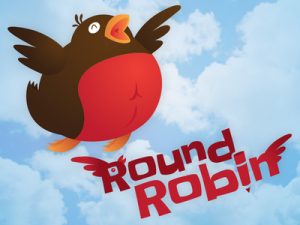Good Riddance, Round Robin!
Recently, a friend shared this story of her 10 year-old granddaughter who has difficulty with reading. The students were required to take turns reading aloud to the class, and when Olivia’s turn arrived, she struggled with the text, which was well beyond her reading level. To add insult to injury, the teacher made her read it again and Olivia dissolved in tears.
There is one thing on which reading experts agree: round-robin reading – the practice of every student taking turns reading aloud from a passage – has never done anything to make any student a better reader, and has done some serious damage to students like Olivia.
Even aside from the obvious trauma for students who struggle, this practice really has no merit for any students. For one thing. reading a passage aloud publicly on the first read interferes with many of the processes readers use to make sense of the text. The reader tends to focus on sounding good rather than attending to what the text is all about. Many of the things we teach readers to do—make connections, pause and reflect, engage in self-talk, go back and reread—are lost.
And what about the rest of the students? They’re likely to be reading ahead, counting paragraphs, or merely daydreaming. Even those who want to follow along may very well have trouble doing so, because one person’s silent reading rate rarely matches another person’s oral reading rate. Following the print while someone else reads can actually interfere with one’s own fluency!
In fact, renowned literacy researcher Richard Allington suggests that students beyond Grade 2 shouldn’t be doing much oral reading at all. On the other hand, I think there are occasions when we want students to read aloud – as long as they’ve had a chance to practice beforehand. Students should never be required to read publicly without rehearsal. The only time we should be asking students to do a “cold read” is when the teacher is doing a one-on-one oral reading assessment.
So, what are some pedagogically sound ways to build reading fluency? Read more about The Fluency Five and Reader’s Theater.
Check out the ARCHIVES of the SUPPORTING STRUGGLING READERS BLOG.





